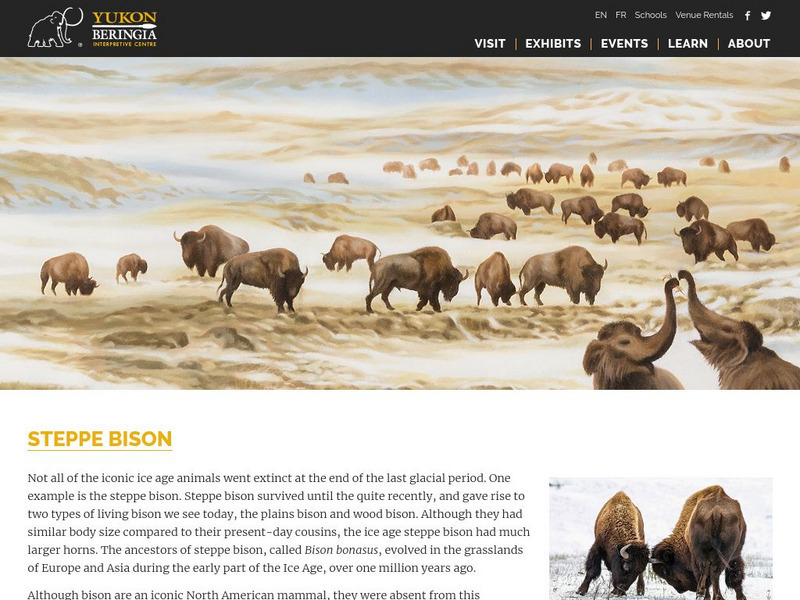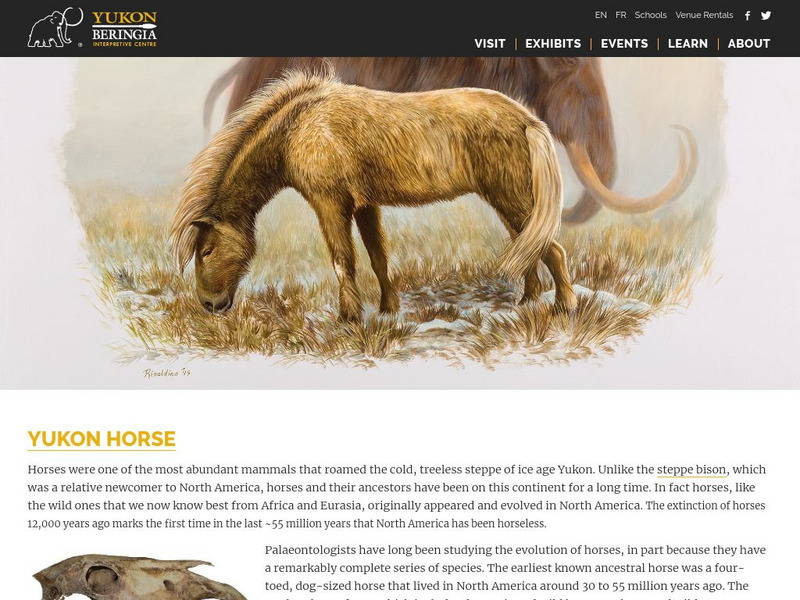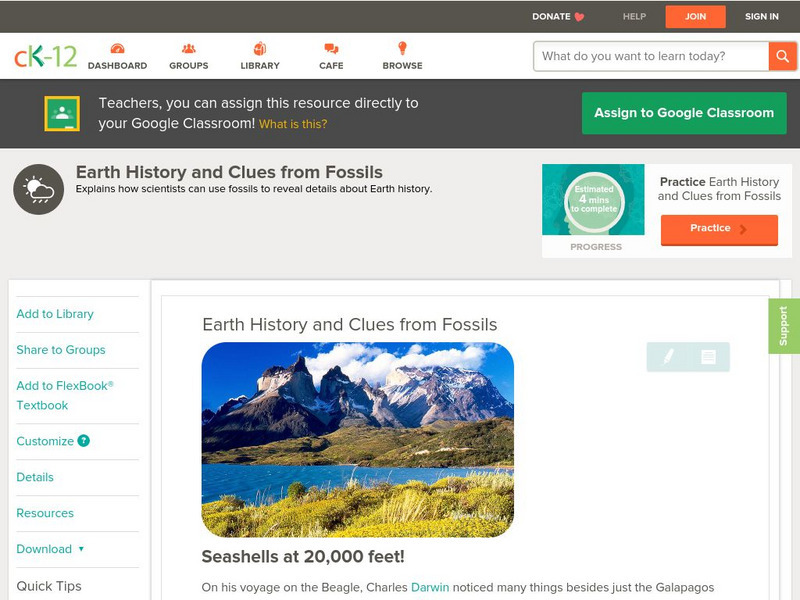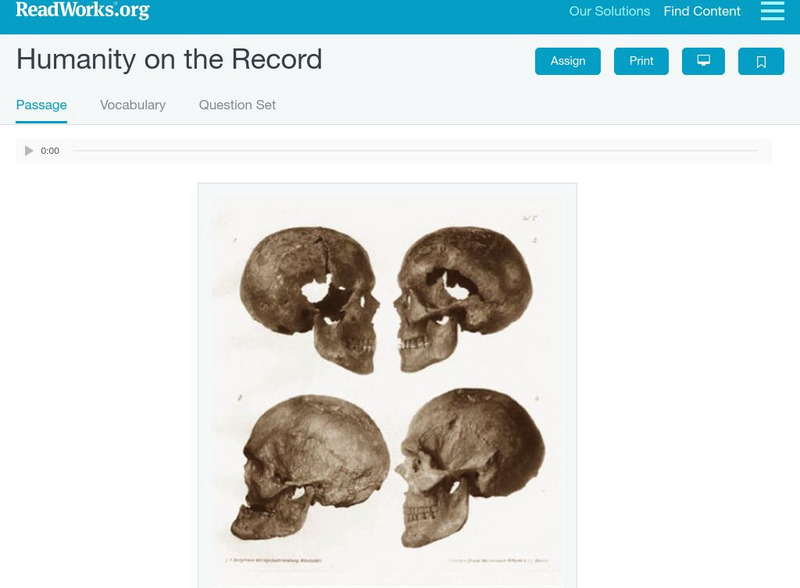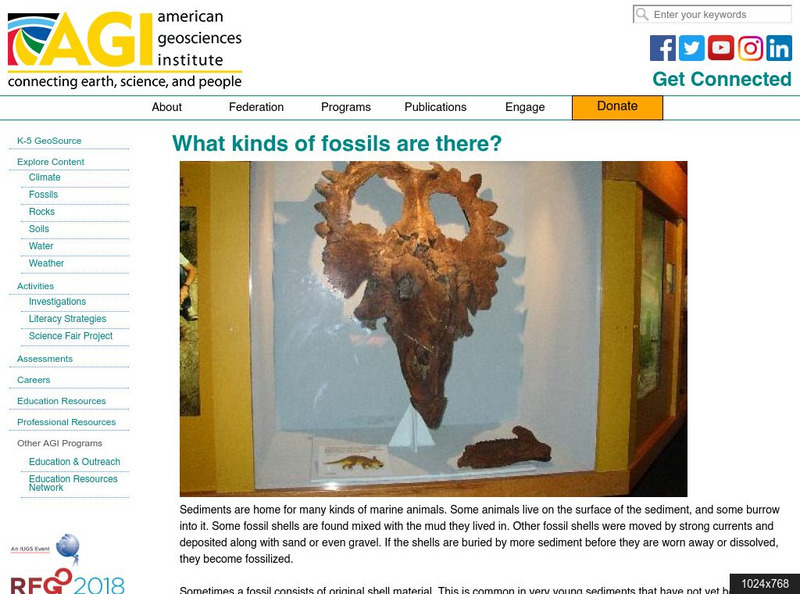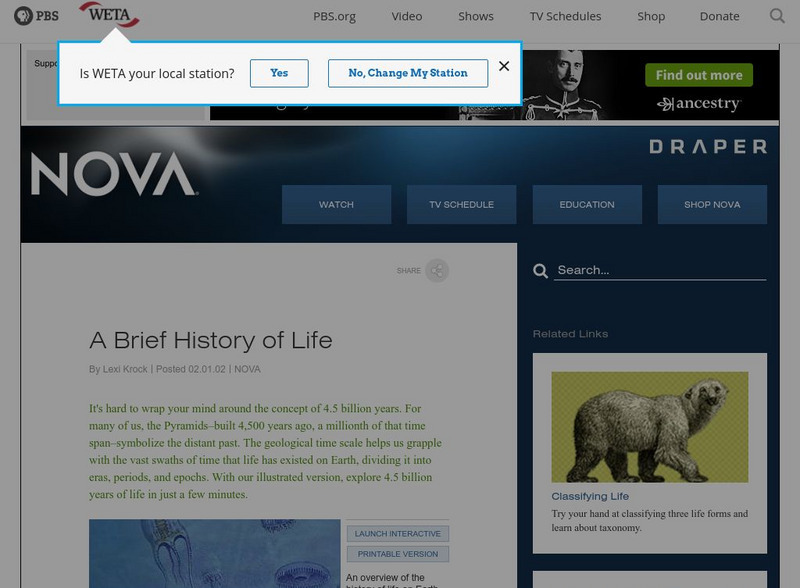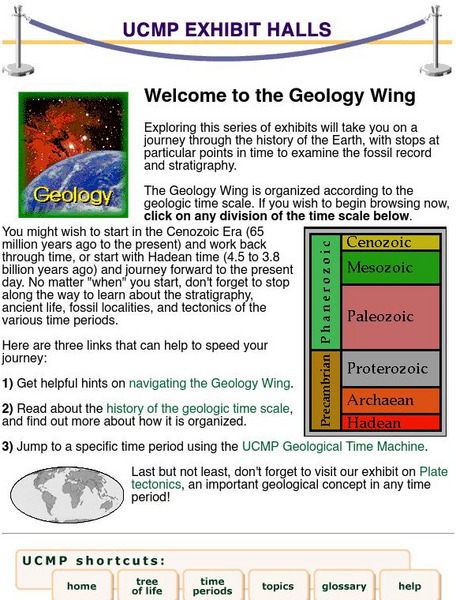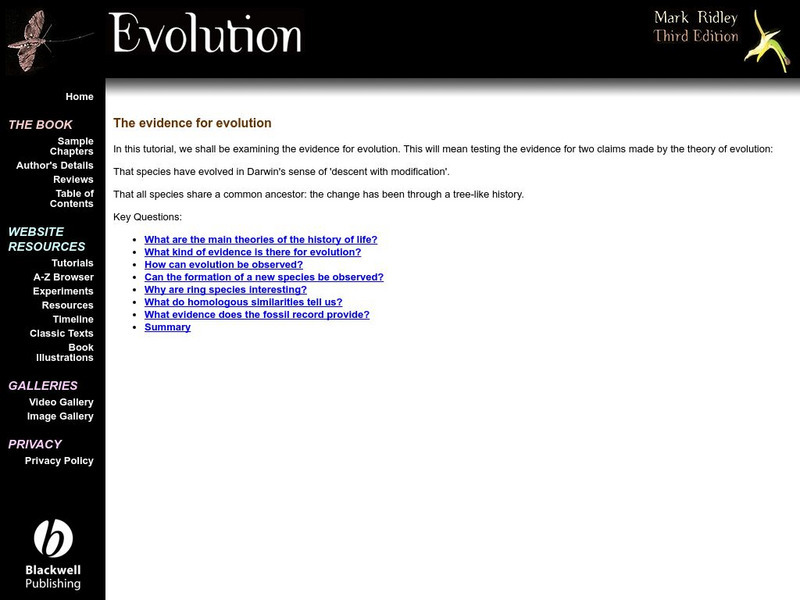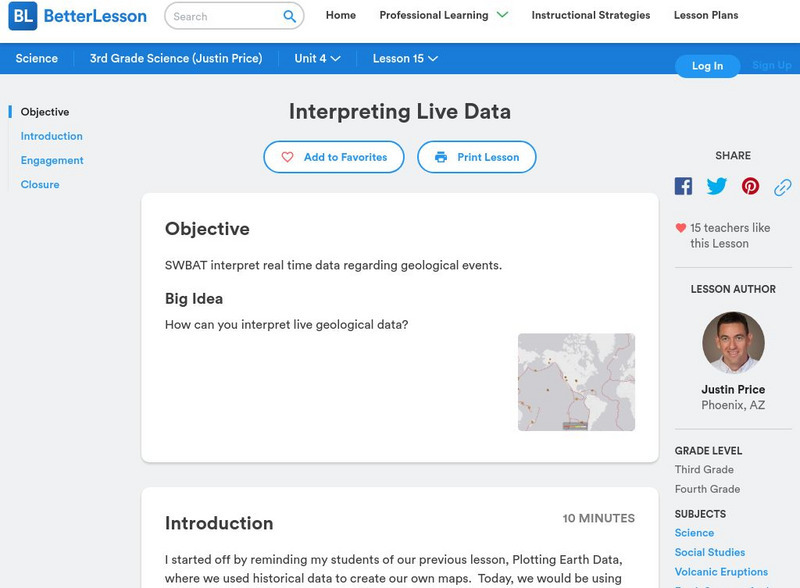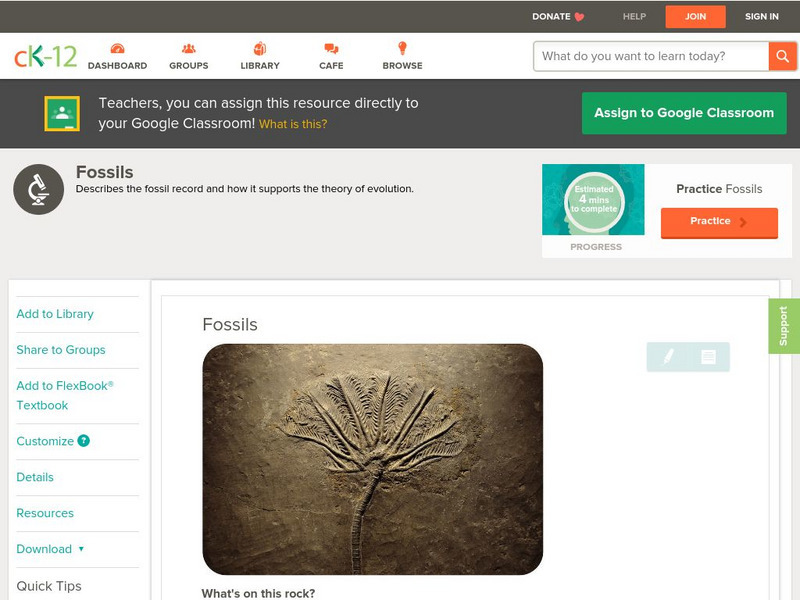Other
Yukon Beringia Interpretive Centre: Research: Giant Beaver
Uncover discoveries from the past by learning about the prehistoric giant beaver. Includes information about the time period, physical characteristics, fossil specimens, feeding habits, and habitat.
Other
Yukon Beringia Interpretive Centre: Research: Steppe Bison
Uncover discoveries from the past by learning about the prehistoric steppe bison. Includes information about the time period, physical characteristics, fossil specimens, feeding habits, and habitat.
Other
Yukon Beringia Interpretive Centre: Research: Yukon's Camels
Uncover discoveries from the past by learning about the prehistoric camels of the Yukon and Alaska. Includes information about the time period, physical characteristics, fossil specimens, feeding habits, and habitat.
Other
Yukon Beringia Interpretive Centre: Research: Ancient Caribou
Uncover discoveries from the past by learning about the prehistoric ancient caribou. Includes information about the time period, physical characteristics, fossil specimens, feeding habits, and habitat.
Other
Yukon Beringia Interpretive Centre: Research: Yukon Horse
Uncover discoveries from the past by learning about the prehistoric Yukon horse. Includes information about the time period, physical characteristics, fossil specimens, feeding habits, and habitat.
Other
Yukon Beringia Interpretive Centre: Research: Beringian Lion
Uncover discoveries from the past by learning about the prehistoric Beringian lion and the American lion that evolved from it. Includes information about the time period, physical characteristics, fossil specimens, feeding habits, and...
Other
Yukon Beringia Interpretive Centre: Research: Saiga Antelope
Uncover discoveries from the past by learning about the prehistoric North American saiga. Includes information about the time period, physical characteristics, fossil specimens, feeding habits, and habitat.
CK-12 Foundation
Ck 12: Earth Science: Continental Drift
[Free Registration/Login may be required to access all resource tools.] Describes Wegener's continental drift hypothesis and his evidence for it.
CK-12 Foundation
Ck 12: Earth Science: Earth History and Clues From Fossils
[Free Registration/Login may be required to access all resource tools.] How scientists can learn information about the past from fossils.
Read Works
Read Works: Humanity on the Record
[Free Registration/Login Required] An informational text about prehistoric evolution of the human race. A question sheet is available to help students build skills in reading comprehension.
American Geosciences Institute
American Geosciences Institute: What Kinds of Fossils Are There?
Learn about the different types of fossils that formed millions of years ago.
American Museum of Natural History
American Museum of Natural History: Ology Quiz: What Do You Know? Paleontology
Test your knowledge of paleontology by taking a quick quiz.
CK-12 Foundation
Ck 12: Earth Science: Earth History and Clues From Fossils
[Free Registration/Login may be required to access all resource tools.] How scientists can learn information about the past from fossils.
PBS
Nova: Amber Around the World
Using an interactive map, find out where amber fossils are located around the world. Twelve different locations are represented on the map.
PBS
Nova: A Brief History of Earth
This timeline is a good resource if you are looking for brief descriptions of the geologic periods. Descriptions include pictures of common organisms for each period and the range of time covered by each period.
Other
Fossil Museum: Geologic Time
Pictures of fossils are arranged in chronological sequence and by geologic period. Pictures include scientific names and location where the fossils were found.
University of California
University of California Museum of Paleontology: Geology and Geologic Time
This site provides information about the geologic relationships of rock layers, as well as much about geologic time and the history of Earth.
Other
The Evidence for Evolution
These pages are part of a site called "Evolution," that accompanies a textbook by the same name. Mark Ridley is the author, and in this section he discusses the evidence for evolution.
Better Lesson
Better Lesson: Interpreting Live Data
Students will be using live data about volcanoes and earthquakes to look for patterns and understand why natural disasters may or may not be able to be predicted. Resources include helpful websites, a video of the lesson in action,...
BBC
Bbc: Gcse Bitesize: Evolution Aqa
Evolution is the change of inherited characteristics within a population over time through natural selection, which may result in the formation of a new species. Fossils provide a record of organisms that lived a long time ago. They also...
Science Struck
Science Struck: The Meaning of Index Fossils Explained
Explains the importance of index fossils for the dating and chronology of events in the fossil and geological records. Discusses uses and examples of index fossils in the Cenozoic, Mesozoic, and Paleozoic Eras.
Indiana University
Indiana Univ. Bloomington: Reference Documents: Common Fossils of Indiana [Pdf]
A fact card describing five fossils common to Indiana.
CK-12 Foundation
Ck 12: Life Science: Fossils
[Free Registration/Login may be required to access all resource tools.] Fossils are the preserved remains of animals, plants, and other organisms from the distant past. By studying fossils, evidence for evolution is revealed....
CK-12 Foundation
Ck 12: Earth Science: How Fossilization Creates Fossils
[Free Registration/Login may be required to access all resource tools.] Describes the conditions necessary for fossilization.



